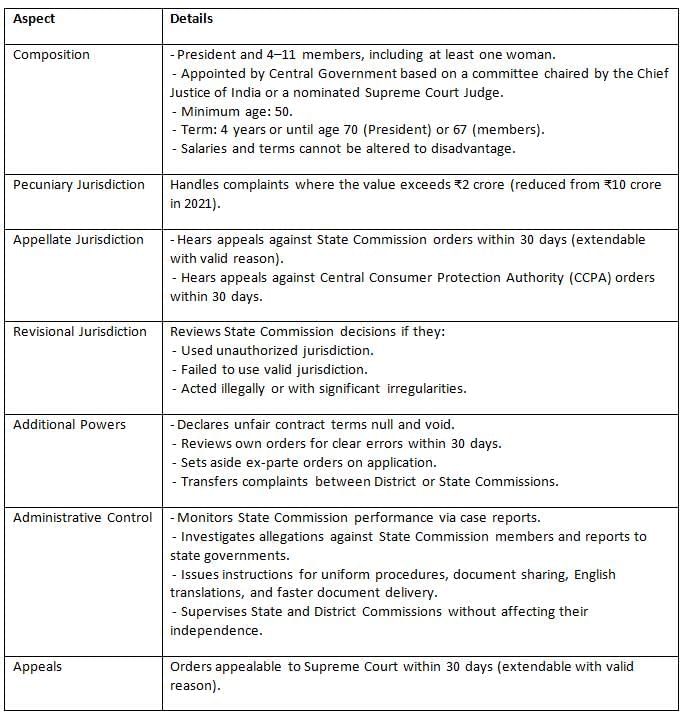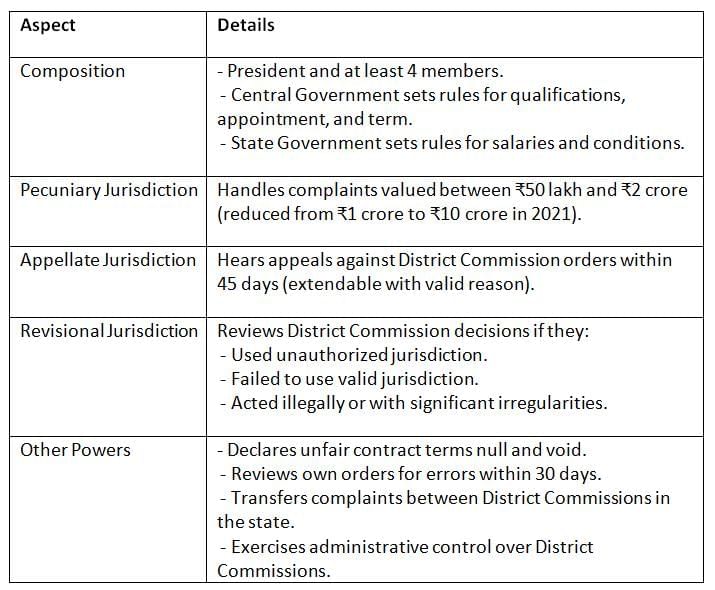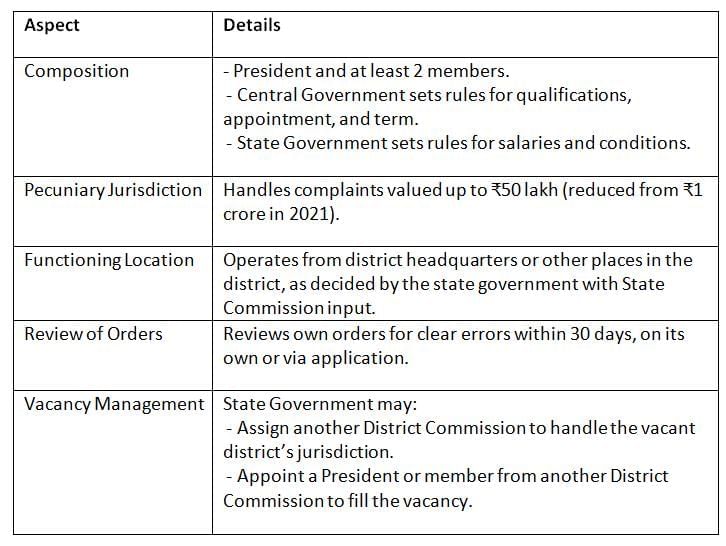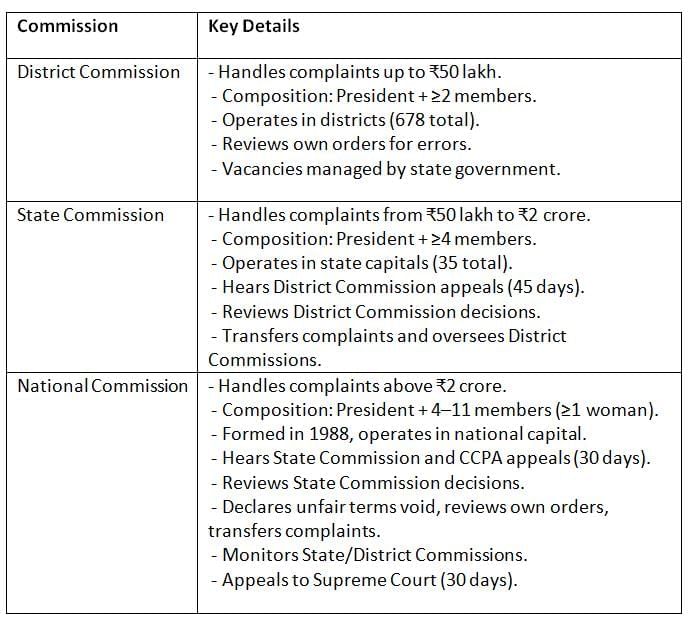Cheat Sheet: Consumer Commissions | Indian Polity for UPSC CSE PDF Download
Introduction
This chapter explains the Consumer Protection Act, 2019, which replaced the 1986 Act to protect consumer rights in India. It establishes a three-tier system—District, State, and National Consumer Disputes Redressal Commissions—to resolve consumer complaints efficiently, avoiding regular courts. These commissions handle disputes based on the value of goods or services, ensuring accessible justice for consumers across the country.
Overview of Commissions
The Consumer Protection Act, 2019, creates a three-level structure of commissions—District, State, and National—to address consumer grievances. These bodies function like courts but are designed for quicker, consumer-focused resolutions.

Key Points:
- The commissions form a hierarchical system to handle consumer disputes at local, state, and national levels, making justice accessible without the complexity of regular courts.
National Consumer Disputes Redressal Commission
The National Commission, the top tier, handles high-value disputes and oversees the functioning of State Commissions, ensuring uniformity and efficiency in consumer justice.
Key Points:
- The National Commission handles high-value cases, oversees State Commissions, and ensures fairness through appellate and revisional powers. Its administrative role promotes consistency across the system.
State Consumer Disputes Redressal Commission
The State Commission operates at the state level, addressing mid-level disputes and supervising District Commissions within its jurisdiction.
Key Points:
- The State Commission bridges District and National levels, handling mid-value disputes and ensuring District Commissions function effectively through oversight and case transfers.
District Consumer Disputes Redressal Commission
The District Commission is the grassroots level, addressing local consumer complaints and providing accessible justice within each district.
Key Points:
- The District Commission provides local access to justice for smaller disputes, with flexible operations and vacancy management to ensure continuity.
Chronology for Quick Revision

Conclusion
This chapter highlights the Consumer Protection Act, 2019, and its three-tier commission system, designed to resolve consumer disputes efficiently at district, state, and national levels. By defining their composition, jurisdiction, and powers, the Act ensures accessible and fair justice for consumers, bypassing the complexities of regular courts. Understanding this framework is crucial for appreciating how consumer rights are protected across India.
|
142 videos|777 docs|202 tests
|
FAQs on Cheat Sheet: Consumer Commissions - Indian Polity for UPSC CSE
| 1. What is the role of the National Consumer Disputes Redressal Commission? |  |
| 2. How is the State Consumer Disputes Redressal Commission structured? |  |
| 3. What types of disputes can be addressed by the District Consumer Disputes Redressal Commission? |  |
| 4. What is the significance of the Consumer Protection Act in relation to these commissions? |  |
| 5. How can consumers file a complaint with these commissions? |  |
















